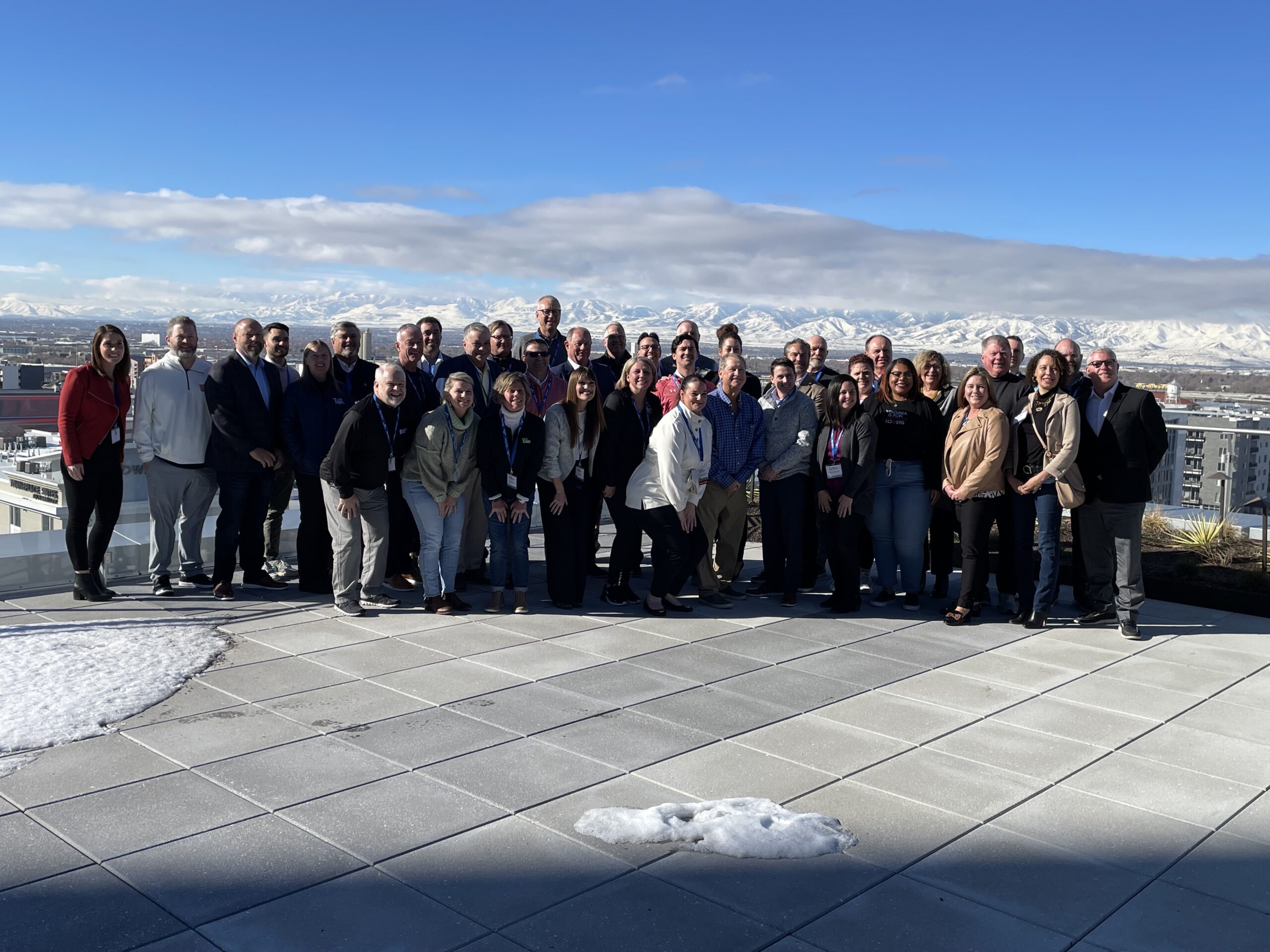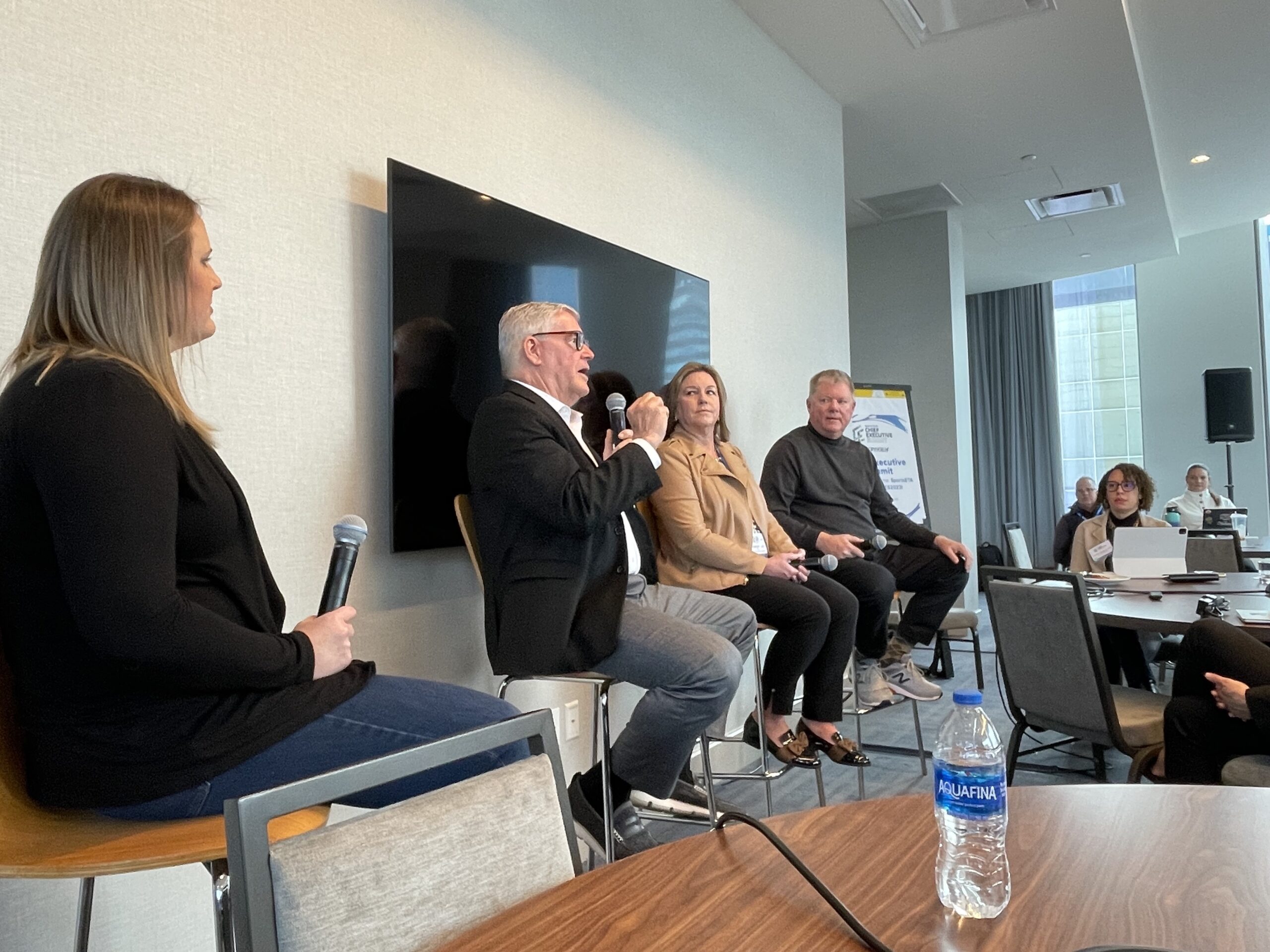Salt Lake Olympic Organizers Stress Intrinsic Value of Sports
Showing value beyond economic impact one of storylines from Sports ETA CEO Summit
Posted On: March 7, 2023 By :For all the numbers of medals won and economic impact, the intrinsic nature of sports and what it can provide remain the strongest memories for those who helped organize the 2002 Olympic and Paralympic Winter Games in Salt Lake City.
Catherine Raney Norman, chair of the Salt Lake City-Utah Committee looking to host a future Games and an athlete at the 2002 Games, recounted hearing from President George W. Bush before the Opening Ceremony as he met the Team USA delegation and how the Games “was really a transformational experience for me as an individual.”
Fraser Bullock, president and chief executive officer of the Salt Lake City-Utah Committee for the Games, recounted a memory from the same Opening Ceremony: “The stadium is packed and in comes the flag from the Twin Towers carried in by eight American athletes. You could hear a pin drop in the stadium. We realized that the Games, yes, it’s an event — but it’s so much more an event. It’s a unifier under the world of sport to celebrate human achievement.”
Bullock and Raney Norman joined the Sports ETA CEO Summit last week, hosted by Sports Salt Lake, to discuss the legacy of the 2002 Games as the region looks to host the Games again in either 2030 or 2034.
“The first time you put on the Games, you worry about if everything is going to work,” Bullock told attendees. “What we’re looking at this time is we know how to put on a Games. We’re saying what we can do more of. We’re really excited about a higher vision.”
To that point, Bullock mentioned how plans for a future Games include working to encourage visitors to come not only for the competition, but to turn it into a longer trip and check out any of the state’s five national parks spread mostly throughout southern Utah. Raney Norman mentioned having a future Games be representative of the community and welcoming more than the athletes, but also their families and making sure they have affordable housing and access to tickets and transportation.
“The pieces that I am really excited about is the fan experience,” said Raney Norman, using the example of the ability for a Games visitor to check out skiing at Park City in the morning and then a hockey game in Salt Lake City in the evening. “When we think about the Olympic and Paralympic movement, we’ve always struggled to understand who the fan is. This is about elevating the brand of the Olympic and Paralympic movement as well. … We’re trying to think bigger about the fan experience, the sponsor experience, the athlete experience and how it all comes together.”
The legacy extends beyond the athletes from 2002. The Utah Olympic Legacy Foundation started after the Games finished and have helped maintain venues and also turn several of the venues into local activity and tourist destinations. Those venues still host a variety of national and international events including World Cup bobsled and skeleton plus speedskating and with more than 1,000 events organized in the past two decades. Raney Norman recounted one person who volunteered as a venue announcer in 2002 and has been a volunteer at every Games since.
“It’s more than just an impact on the athletes, it can change the trajectory for those who are participating,” she said.

NCAA Bid Cycle Preparations Underway
While it feels far away, the NCAA is preparing to open the site selection process for the 2026-2027 through 2029-2030 cycles. Ryan Tressel and Kristin Fasbender, NCAA directors for championships and alliances, gave CEOs in attendance a quick overview of the process.
The bid portal will open July 19, 2023, for 125 sites annually — the only championships not involved are FCS football, Division III women’s ice hockey, plus men’s and women’s college world series. The NCAA will host a symposium on August 29 in Indianapolis for cities before the bid portal closes on February 7, 2024. The tentative host sites announcement for the next bid cycle will be October 2, 2024.
The NCAA will look to have three qualified bids for every championship in the bid cycle. Hotels, facilities and partnering with a NCAA host institution or conference will be among the keys to a successful bid, attendees were told, along with competitive host budgets, team friendly lodging (with a high need for double rooms and closeness to a venue) and having cities bid for both low and high-profile championships.
There were 3,000 bids submitted in the last cycle of championship host awards from 46 states plus the District of Columbia. Orlando had the most bids awarded with 16 followed by Indianapolis and Salem, Virginia, both with 15. Cary, North Carolina, had 11 bids with Las Vegas and Pittsburgh (10 apiece) rounding out the top five.

Evaluating the Industry
The second day of programming was highlighted by “Industry Insider: The Changing Landscape of Sports, Events, and Tourism in the US and Beyond.” The session was moderated by Dr. Jennifer Stoll, principal, Stoll Strategies.
Kathy Nelson, president and chief executive officer for Visit Kansas City and Kansas City Sports Commission, knows all about big events given the parade her city threw for the Super Bowl champion Chiefs — and with the NFL Draft coming to town in a few months and the 2026 FIFA World Cup in a few years.
“If you don’t have your city, county and state involved — the more I tell them, the more helpful they are,” said Nelson, who added that being awarded a host city assignment for the World Cup is already paying dividends.
“When you are bidding on an international event and now you’re awarded it, it makes you that much smarter and more aware of what’s out there,” she said. “Now we have secured two massive international conventions because of the World Cup in the last six months. For us, we’ve dipped our toe in the water and now it’s onto what’s next and it’s coming onto us fast and furious.”
Numbers and data will also become even more prevalent and important in showing the value of attracting events, said Don Welsh, president and chief executive officer of Destinations International.
“One thing that happened was during the pandemic, if there was a silver lining, we had this incredible global sharing of information,” he said. “That hasn’t stopped. … If you show Mr. and Mrs. Smith that what we (hosted) brought their taxes down from $1,500 to $800 a year, that gets their attention. Don’t try to do things in the community that the citizens in your community won’t embrace.”
Al Kidd, Sports ETA president and chief executive officer, emphasized the global market for sports, pointing to the number of international events coming to the U.S. in the next decade.
“Norway would love to come to the U.S. for wrestling,” Kidd said. “Volleyball people in Netherlands would love to go to Omaha … It’s not just the major cities. … you will find they will go to any market where they can get fans and get more exposure.”
And tying back to the session with Bullock and Raney Norman, Kidd also spoke to the non-financial aspects of the industry and bringing in events.
“The value of sports transcends just hotel rooms,” Kidd said. “Don’t take it for granted, it’s an extremely important part. But there’s more value than that. Sports really fits as a community aspect. … it has a value that’s different than everything else and focus on community.”
Posted in: Hosts & Suppliers, Latest News